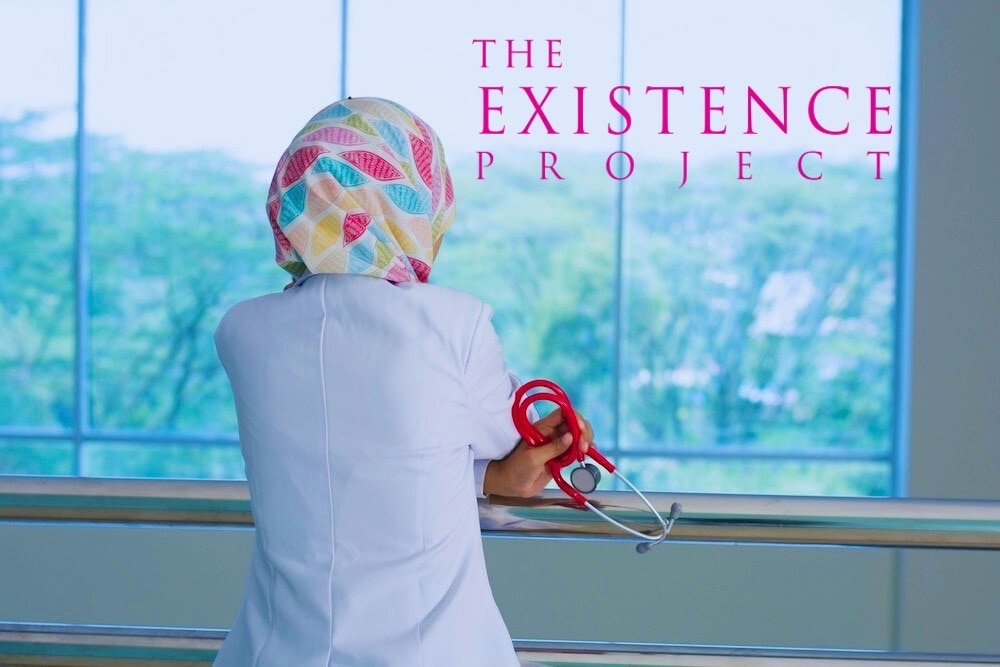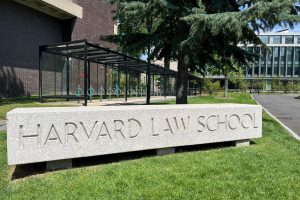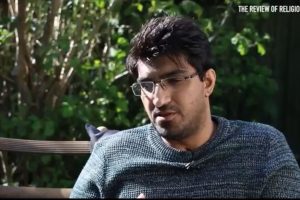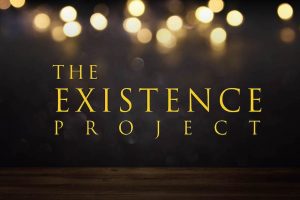
© Shutterstock
Natasha Syed, UK
Some objects are more than tools – they’re vessels of care, memory, and silent meaning.
My stethoscope was one such object. A gift from my late grandmother, the only grandparent alive to witness my acceptance into medical school. I still recall the joy in her voice upon hearing the news, her cheeks glowing with Noor [light], eyes lit by a whispered prayer fulfilled.
She passed away in my second year, palliated with end-stage cancer over six slow months that felt suspended in time, yet ended in a heartbeat. Watching her decline while training to heal others quietly fractured something within me.
I helped care for her during that time – holding her hands, adjusting her pillows, thickening her water. I remember her repeating one prayer aloud, until she could no longer speak:
حَسْبُنَا اللَّهُ وَنِعْمَ الْوَكِيل
‘Sufficient for us is Allah, and an excellent Guardian is He.’ [1]
After she passed, that stethoscope became more than an instrument. It became a connection, a way to feel her presence, her prayers. A means to auscultate the unseen.
Her name was Razia, which means ‘content’. In many ways, that became my prayer too – that she would be pleased with me, and with the path I was walking. Each time I placed my stethoscope on a patient’s chest, it served as an enduring reminder of that hope.
As a first-year medical student, I had carefully chosen its sleek, matte-black design. Stylish, yes, but indistinguishable from almost every other stethoscope in the hospital. Its only distinguishing mark was a faint etching of my name on the bell – barely visible, and, as a rotating medical student, unlikely to mean much to anyone.
In my final year, during a particularly hectic clinical rotation, it went missing. I recall the panic setting in as I rummaged around in my backpack.
As a knee-jerk reaction, I wrote to His Holiness, Hazrat Mirza Masroor Ahmad (aba), the Fifth Caliph and Worldwide Head of the Ahmadiyya Muslim Community, humbly requesting prayers. After faxing the letter, I briefly felt foolish, questioning the significance of writing about such a small, material loss. But then a saying of the Holy Prophet Muhammad (sa) came to mind:
Let one of you ask his Lord for his needs, all of them, even for a shoestring when his breaks. [2]
This wasn’t about an object of any material worth, but a sacred sentiment, woven through generations of prayers and sacrifice, from those who hoped to see a doctor in the family.
At the same time, I began searching. My rotations had taken me through almost every hospital ward, with countless patient encounters requiring chest auscultation. In the weeks that followed, I called various hospital departments and the medical school administration, hoping it had been handed in. Every call met the same polite dead end. Having also rotated through a general practice surgery, the practice manager confirmed every consultation room had been scoured and every clinician had checked, but to no avail. As the winter break neared, the odds seemed bleak. I’d asked everyone (short of the hospital coroner, perhaps). On the final day of term, I wrote another letter to His Holiness (aba) requesting prayers, recited, إِنَّا لِلَّهِ وَإِنَّا إِلَيْهِ رَاجِعُونَ , which means ‘Indeed, to Allah we belong, and to Him we will return’ [3] (a prayer recited typically when we lose someone, but it can also be recited when we lose something), and relinquished the matter to the true Guardian of things that are lost and found: God Almighty.
Despite needing one for imminent assessments, I couldn’t bring myself to order a new stethoscope. While abroad over the holidays, I added a replacement to my online basket, but never quite completed the purchase. I resolved to use my flight home to pray, remembering how supplications made on a journey are especially beloved to God Almighty in the Islamic faith. So, I prayed, accepting that if it wasn’t meant to return, there must be wisdom in its loss, and if needed, ordering the replacement could wait until I was home.
Upon touchdown in London, still seated on the plane on the runway, I switched off airplane mode on my phone. A voicemail came through instantly – an unknown number.
It was the receptionist from the GP.
For a moment, I just sat there, stunned. My stethoscope had been found and carefully placed in a named envelope at the front desk, waiting for me. Not even London’s bleak January skies could dim the smile that followed.
Now, whenever I don my stethoscope, I do so a bit more gratefully. Its familiar weight around my neck reminds me that some returns are more than coincidence. It wasn’t just that it came back, but how it did – at just the right time, in just the right way.
When memory falters, when the world feels a little too vast, when what we hold dear seems just beyond our grasp –
He reminds us of His nearness. Gentle, yet unmistakable.
In such moments, the hairline fractures within us begin to heal, remodelled into something stronger: faith shaped by surrender.
About the author: Natasha Syed is a resident doctor working in the NHS. She is a member of The Existence Project team for The Review of Religions.
ENDNOTES
[1] The Holy Qur’an, 3:174.
[2] Tirmidhi.
[3] The Holy Qur’an, 2:157




Add Comment